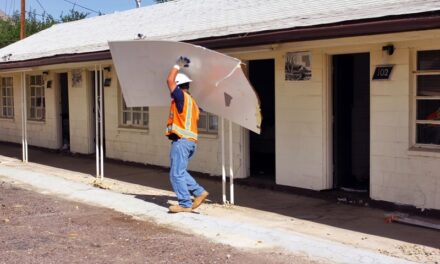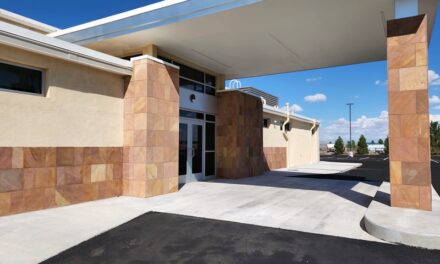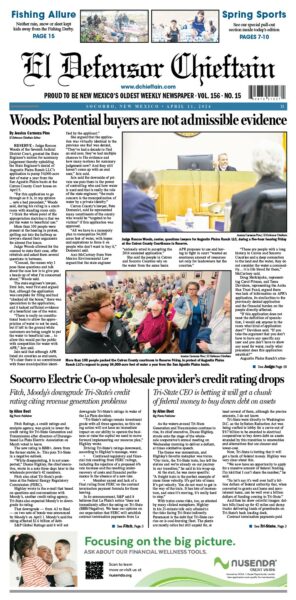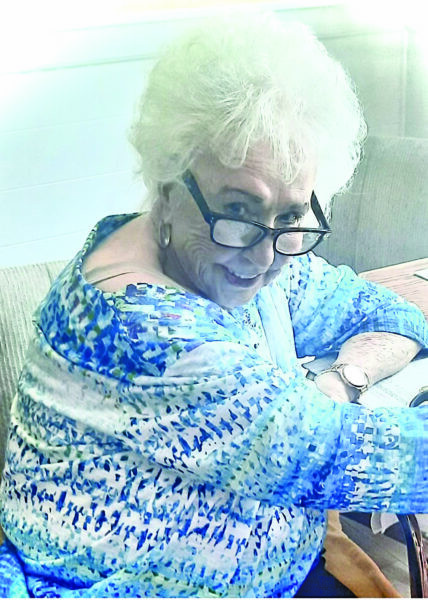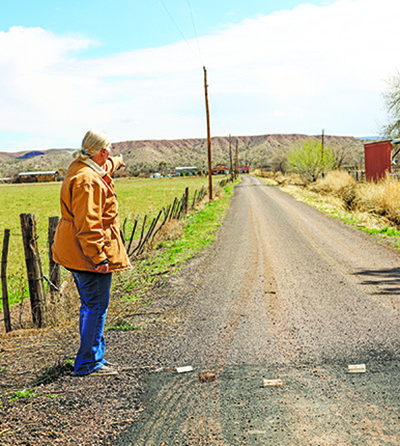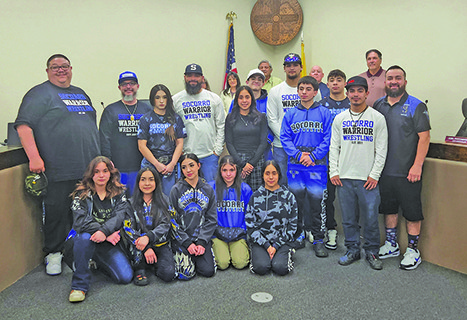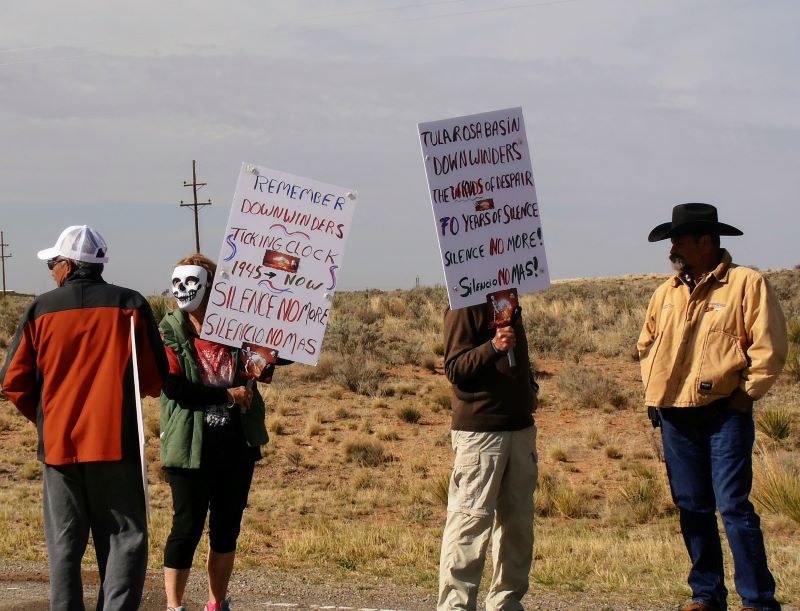
Members of the Tularosa Basin Downwinders Consortium hold a peaceful demonstration at WSMR Stallion Gate.
John Larson | El Defensor Chiefftain
The citizen’s group known as the Tularosa Basin Downwinders Consortium is proposing a change to a bill in Congress that would allow individuals affected by radioactive fallout to receive medical coverage.
Louisa Lopez of Socorro County and others in the group maintain that people whose families lived in the vicinity of the Trinity atomic bomb test should be compensated for health problems they claim were due to radiation fallout. This would also include some descendants who may have been born with a genetic predisposition to health issues stemming from radiation poisoning.
According to legislation introduced by U.S. Sens. Ben Ray Luján, and Mike Crapo, a Republican from Idaho, other sites would be added to the list of places affected by fallout and radiation exposure. Eligibility also would be expanded to include certain workers in the industry after 1971, such as miners.
The legislation also would increase the amount of compensation someone can receive to $150,000 and provide coverage for additional forms of cancer.
Advocates, including Tina Cordova, co-founder of the Tularosa Basin Downwinders Consortium, have been working on the legislation for months with other residents of places affected by radiation, from Indigenous communities in New Mexico to Gaum.
The original bill, passed in 1990, awarded financial reparations to Nevada Test Site Downwinders, on-site test participants during atmospheric nuclear weapons tests, and uranium miners and millers who worked before 1971 and who developed cancer and/or other specific illnesses as a result of radioactive fallout or radon gasses to which they were exposed.
The Tularosa downwinders were not included in the original Act, or in subsequent amendments to the Act.
“On the soil, in the water, in the air, on the plants, and on the skin of every living thing, both human and animal,” Cordova said a previous interview with the Chieftain. “It was an environmental disaster of grand proportions and the total destruction of a way of life for everyone who lived in New Mexico at the time.”
Efforts to expand the program go back several years, but now advocates say there is broader interest since more people would stand to lose access to compensation funds when the current law expires in July.
The group recommends five changes to the bill:
- That the United States government issue an apology to citizens of New Mexico for the “intentional bombing of those living downwind of the first atomic test on July 16, 1945 at the Trinity site in south-central New Mexico.”
- The eligibility period must be expanded to an open-ended period.
- That the bill requires that medical care be provided similar to nuclear workers under the Energy Employees Occupational Illness Compensation Program Act.
- That the sunset provision for RECA be extended from July 9, 2022, to at least July 9, 2045.
- That recurrent annual funding to the RECA Trust Fund is included in the proposed amendments.
The National Institute of Environmental Health Sciences must establish a grant program for institutions of higher education to study the epidemiological impacts of uranium mining and milling among non-occupationally exposed individuals.


